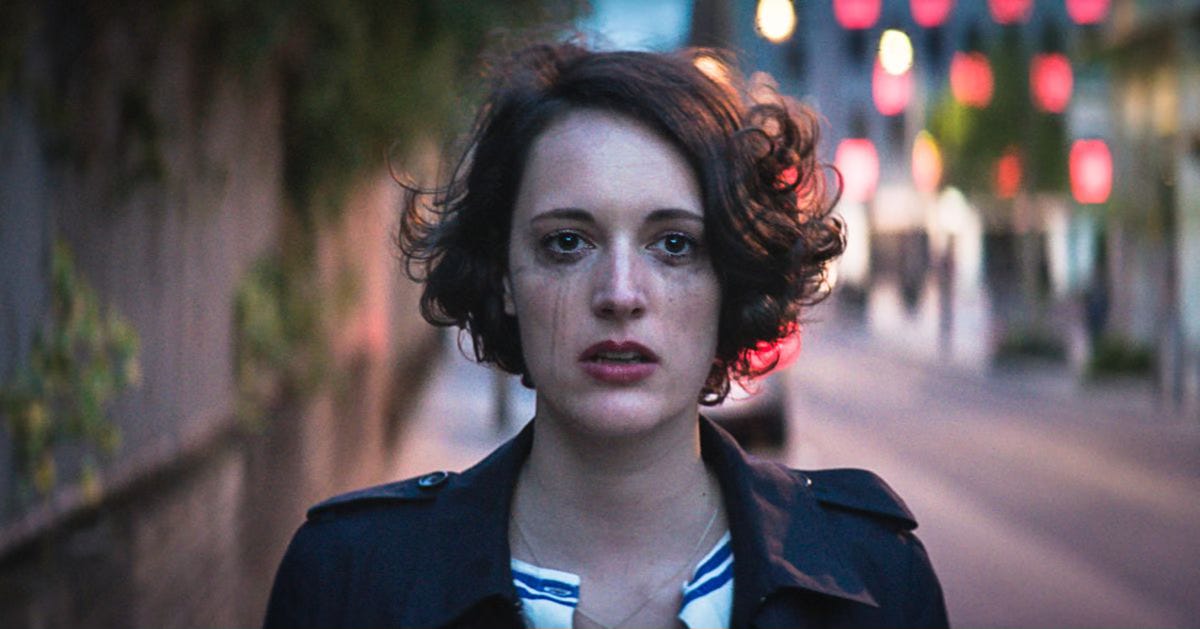It’s official - I’ve entered my romcom era.
It started with Daniel Levy’s ‘Good Grief’, swiftly followed by Jennifer Smith’s ‘Love at First Sight’ and a binge of David Nicholls' Netflix series ‘One Day’.
Each of these stories explored themes of love and loss. ‘One Day’ particularly struck a chord, uncovering emotions from past experiences I had thought were safely tucked away.
As I saw others sharing their thoughts from ‘One Day,’ a common thread emerged: human connection. Whether through love, longing, or heartache, the characters mirrored our own vulnerabilities and desires.
I wanted to share a couple of my own experiences and the profound lessons they taught me, alongside my takeaways from ‘One Day.’
An unexpected loss
In December 2019, a month after the birth of my daughter, we were hit with the devastating news that my stepmum had been diagnosed with terminal stomach cancer. I can still remember the phone call from my dad. His usual calm was shattered by the tremor in his voice, followed by a deafening silence and then, tears. It was a rare moment of vulnerability from him, one of the few times I’ve heard him cry. The news was unimaginable. She was just 59 and they had been planning their retirement together.
By January 2020 my stepmum, demonstrating unbelievable strength, had arranged her own funeral and began her temporary treatment to buy some extra time. They created a bucket list, determined to make the most of the time they had left. But then, the COVID-19 pandemic struck. Plans were cancelled, treatment stopped, and hope faded. Exactly one year after she had planned her funeral, there we were attending it. At the age of 63, my dad found himself a widower.
Grief is the price we pay for love
The late Queen Elizabeth II once said, “Grief is the price we pay for love” after losing Prince Phillip.
The thought of losing a life partner is something I find hard to fathom. I respect the resilience my dad has shown in moving forward. It’s been challenging, but he goes on.
I remember the time when my grandma passed away from pancreatic cancer in 2006, leaving my grandad devastated. They had shared over 50 years of marriage, and then after a short period of illness, she was gone. When I heard she was ill, I was travelling in New Zealand. My mum had tried to shield me from the news but standing in a phone booth in Wellington in the pouring rain, I knew something was terribly wrong by her voice. I cut my trip short and flew home. I would never have forgiven myself if I hadn’t had the opportunity to say goodbye. Luckily I made it back in time.
Studies show that men who lose a long-term spouse are 70% more likely to pass away within a year, and sadly, my grandad became part of that statistic. The pain of losing her was agonising for me, so I can only imagine how he felt.
While rewatching BBC’s Fleabag recently, a poignant scene at her mother’s funeral, summarised the emotions I felt when I lost my grandma at 21.
Phoebe Waller-Bridge says,
“I don’t know what to do with it… with all the love I have for her.
I don’t know where to put it now?”
To cope with the loss of my grandma, I threw myself into my final year of university and then concentrated on getting my career underway, not coming up for air. I didn’t confront my grief for a long time. It was only when I began to lose other family members that the cracks started to appear, and I realised I needed to take a break from work. Grief has a peculiar way of catching up with you, and it will find you, one way or another.
Talking about grief
In the novel ‘One Day’, Dexter finds himself surrounded by friends and family on the anniversary of Emma’s passing. Yet, statistics reveal that 39% of those grieving struggle to receive support from their loved ones. Research by Marie Curie in 2022 found that one-third of the UK population is worried about discussing grief, fearing it might upset others. Surely, we’re better than that?

Grief can be an unfamiliar and uncomfortable experience, leaving us speechless when trying to comfort someone who has suffered a loss. When my dad became a widower, I found the guidance provided by Cruse Bereavement on ‘How to support someone who is grieving’ incredibly helpful. They’ve also developed a resource called ‘What to say when someone dies’. The charity Mind also provides an extensive list of bereavement support organisations. I wish I’d have known about these in my twenties.
Always remember, you’re not alone in grief. There’s always someone willing to listen, be it a family member, a friend, or even a stranger.
Lessons learned
While this blog post may not be the most cheerful, it’s important to discuss the range of emotions we experience as humans. Here are some takeaways I’ve learned from my own experiences and the odd romcom or three:
Seize fleeting moments: Life is made up of opportunities; grab them
Cherish time with loved ones: Make the most of every moment
Show how you feel: Speak openly with those you love
Be present: Love and live fully, because tomorrow is never certain
Did you like this post? Please spread the word!
If you know someone who would appreciate this Substack, please share this post and invite them to subscribe :) I’m grateful for your support.
Kat x





